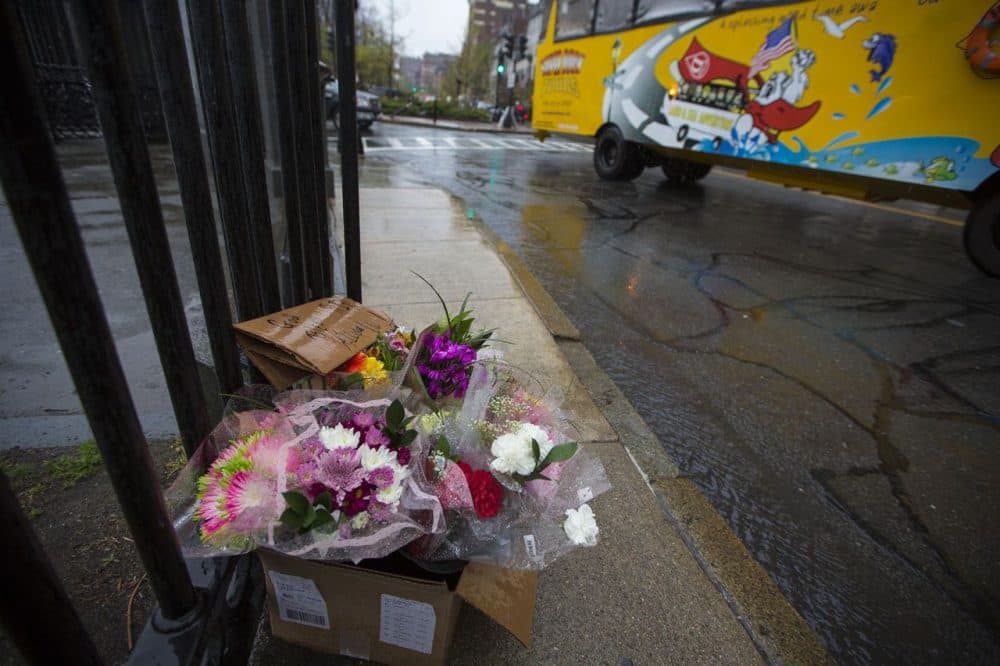Advertisement
Could The Fatal Duck Boat Crash In Boston Have Been Prevented?

On Saturday, one of the city's Duck Boats collided with a scooter near the Boston Common, killing the scooter's driver, 28-year-old Allison Warmuth.
The crash has raised concerns about the safety of the large, high-seated vehicles on busy city streets, and the vetting of Duck Boat drivers. The driver of the Duck Boat was found to have several driving violations, including 10 speeding citations over the past two decades.
The Boston Duck Tours company said it was not fully aware of the driver's violations. In a statement, Chief Executive Cindy Brown said, "safety has always been our number one priority."
But the accident also raised questions about the design of the boats and whether there could be changes to make them safer on city streets.
Guest
Peter Furth, professor of civil and environmental engineering at Northeastern University. He tweets @PeterFurth.
More
WBUR: RMV: Driver In Fatal Duck Boat Crash Had History Of Driving Violations
- "The driver of an amphibious sightseeing vehicle involved in a fatal crash with a woman riding a scooter in Boston has a history of driving violations."
The Boston Globe: Experts Raise Questions About Duck Boats’ Blind Spots
- "Driving a heavy vehicle with tall wheels and blind spots on urban streets is inherently dangerous ... [The duck boats] need to be modified or have their way of operating modified so that they don’t have those blind spots."
The Atlantic City Lab: A Brief History Of Duck Boat Tours
- "These days, Boston is one of several cities that operate such tours. But they got their start in rural Wisconsin. After the war ended in 1945, the military made surplus supplies available for public purchase. Bob Unger, a veteran from Milwaukee, snapped up a DUKW, which he had learned to pilot during the war. Where he saw an army relic, his fried Mel Flath saw a business opportunity."
This segment aired on May 3, 2016.